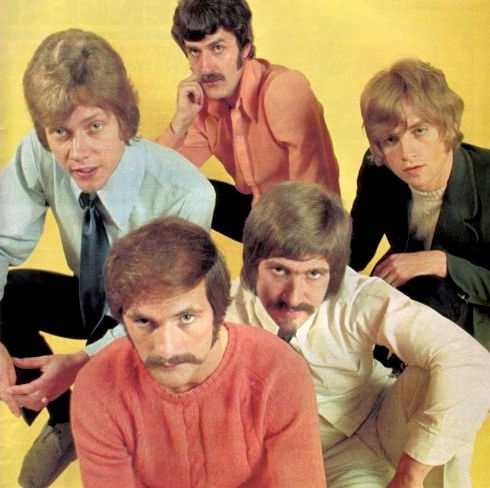
EPISODE 230: Question (LIVE)
The fact that the mainstream churches are hiding their Light under a bushel is the primary reason for their atrophy. The fact that most of our churches are “missing in action” when it comes to the seemingly insuperable pain of living that we bring to them and to their representatives — well, that, I believe, is the main cause of their numerical decline.
 Today I want to posit an alternative to this almost willful but in fact mostly unconscious suppression of the Primary (i.e, the Gospel Word) in favor of the secondary (i.e., “issues” of the day) and the tertiary (i.e., endless announcements about meaningless, useless parish activities and functions, to which almost no one really wants to come).
Today I want to posit an alternative to this almost willful but in fact mostly unconscious suppression of the Primary (i.e, the Gospel Word) in favor of the secondary (i.e., “issues” of the day) and the tertiary (i.e., endless announcements about meaningless, useless parish activities and functions, to which almost no one really wants to come).
The response to Episode 229, entitled “I Live on a Battlefield”, was astounding! It was as if that cast had pulled down the statue of Dagon, and with it the failed constructions of a generation.
All I was trying to say in that cast was that Mary and I had been “Crawling from the Wreckage” (Dave Edmunds, 1979) of our lives, especially my professional life — crawling on our hands and knees — to “mainstream” churches near us — you name it, almost anywhere — and finding nothing, ABSOLUTELY NOTHING, to help us or sustain us. That is, unless we were victims of Hurricane Harvey, in the instance of which most local churches usually do well. (Paging pastoral Josh Condon and others like him!)
In today’s cast, in the aftermath of NOTHING — or almost nothing — proffered to a sufferer like me when he or she comes to church, drawn by pain, I sketch out the profundity of… The Moody Blues. Yes, the partly lame but more often inspired Moody Blues.
The Moodies’ single from 1969 entitled “Question” says almost everything there is to say — about life and living. One can be astonished, thinking about it now, that Justin Hayward composed that song when he was 23 years old. Would that I had met him, and been counseled pastorally by him — I fear he would have run the other way — in… 1969.
Hope this cast speaks to you. Hope this cast bears… a little empathy.
EPISODE 231: On the Road to Love
One more ‘riff’ on the paucity of mainstream church “address” to the hungry and hurt visitor, let alone the hungry and hurt regular; but with hope:
Justin Hayward is sometimes accused of sentimental romanticism. I don’t agree. I think he is on to something.
His songs locate the heart of human pain in the misses and defeats incurred within the elemental atmosphere of romantic love. I believe experience confirms this. Nobody dies thinking about Clemson vs. Alabama, or whether their career could have gone better, or whether Senator Muskie did or did not win the Presidency — or even how you acquitted yourself during a natural disaster.
But EVERYBODY dies thinking about love, or rather, who it is that loved you. That’s the Golgotha door to the next life! It’s the biggest thing that can hang you up at the end of death.
Songs like the two that conclude this cast, which are “It’s Up To You” and “Lovely To See You Again”, have the shoe on the right foot. In fact, I would almost defy you to hear them and not have them in your head for the next… week, at least.
From a theological point of view, Episode 231 is also a reflection on analogy, and how God is understand through analogy. But I don’t take Barth’s line. Would rather work from the bottom up.
There is also a moment of unguarded rhetoric near the end — not vulgarity but rather “Hercules Unchained” — that absolutely cracked me up when I heard it played back.
LUV U.
EPISODE 232: Easier Said Than Done
Sometimes when I hear a sermon or address that stresses the presence of God in catastrophic situations, let alone God’s presence in the midst of sin and sinners, I want to stand up and ask (tho’ I never do): “Do you really believe what you are saying? Are you willing to go all the way with such pronouncements, placing God in such desperate company? Or rather, is it just ‘Easier Said Than Done’?”
One’s pastoral and personal experience is that such declarations can be hollow. That is because it seems there is almost always ONE exception, in one’s practice and subjectivity, to the statement that God lives in our tragedies, our discomfiture, and our self-created torments. Usually there is a personal exemption-principle at work, despite all the talk of God’s omni-Grace.
Mary and I used to scratch our heads sometimes when a faithful person whom we knew seemed to lose all his or her serenity and peace in the face of a crushing circumstances, and most notably, in the face of their death. At times it almost seemed that a person’s Christianity had been a kind of masquerade. Or at least, a masquerade in connection with one very BIG point of pain.
So my question in the cast is, Do you really believe what you say about grace? And do you really believe what you say concerning the theology of the cross?
Oh, and so you know: the cast ends on a strong note of hope, lifted directly from the gateway to the Grove Street Cemetery in New Haven, where the words stand engraved:
“The Dead Shall Be Raised.”

COMMENTS












